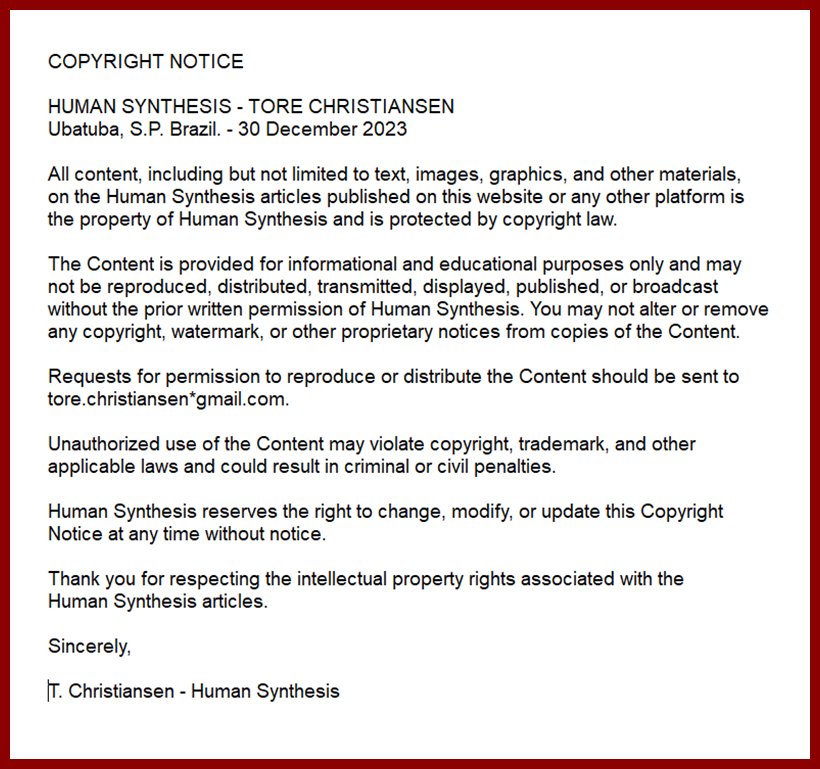Israel-Gaza war live: Israel’s use of heavy bombs raises ‘serious concerns’ under laws of war
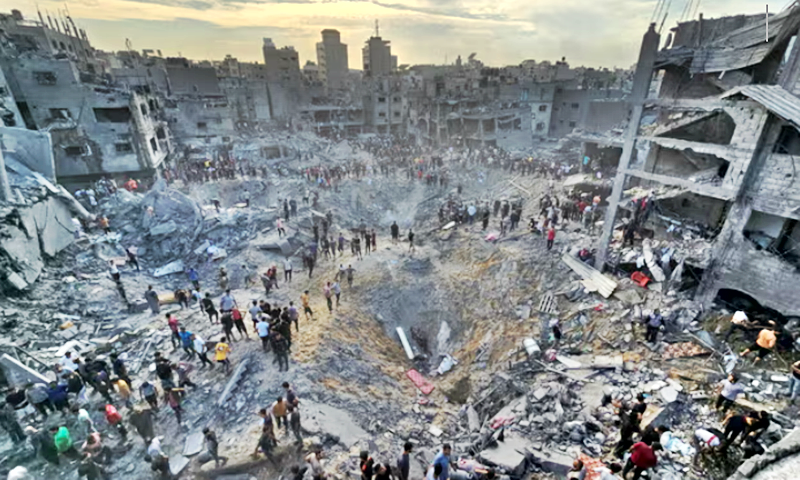
By Guardian - Rachel Hall /Amy Sedghi - Wed 19 Jun 2024 14.16 BST
Israeli use of heavy bombs raise 'serious concerns' under laws of war, concludes OHCHR report
Report by the United Nations human rights office says series of strikes ‘violated fundamental principles’ governing conflicts
The Agence France-Presse news agency have more on the report by the United Nations human rights office (OHCHR) (see 09.53 BST).
In a report published on Wednesday, the OHCHR provided details on six Israeli attacks in the Gaza Strip, which it said were emblematic of a concerning pattern, involving the suspected use of up to 2,000-pound bombs on residential buildings, a school, refugee camps and a market.
The rights office said it had verified 218 deaths in those attacks, but said it had information indicating the number of fatalities “could be much higher”.
The OHCHR report concludes that the series of Israeli strikes, exemplified by the six attacks carried out between 9 October and 2 December, suggested that Israel’s military had “repeatedly violated fundamental principles of the laws of war”, the statement said.
AFP reports that among the attacks listed were the strikes on Ash Shujaiyeh neighbourhood, in Gaza City on 2 December last year. It caused destruction across an approximate diagonal span of 130 metres, destroying 15 buildings and damaging at least 14 others, it said.
The extent of the damage and the craters visible and seen on satellite imagery indicated that around nine 2,000-pound GBU-31 bombs were used, said the OHCHR, adding that it had received information that at least 60 people were killed.
GBU-31s, along with 1,000-pound GBU-32s and 250-pound GBU-39s “are mostly used to penetrate through several floors of concrete and can completely collapse tall structures,” UN rights office spokesperson Jeremy Laurence told reporters.
ShareUpdated at 10.11 BST11m ago14.16 BST
UN inquiry condemns 'extermination' of Palestinians
The head of a UN inquiry has accused the Israeli military of carrying out the “extermination” of Palestinians, reports Reuters.
In a meeting of the UN human rights council in Geneva, the head of a UN Commission of Inquiry, Navi Pillay, said perpetrators of abuses in the conflict must be brought to account.
She repeated findings from a report published last week that both Hamas militants and Israel have committed war crimes but said that Israel alone was responsible for the most serious abuses under international law known as “crimes against humanity”.
Pillay said the scale of Palestinian civilian losses amounted to “extermination”.
“We found that the immense numbers of civilian casualties in Gaza and widespread destruction of civilian objects and infrastructure were the inevitable result of an intentional strategy to cause maximum damage,” Pillay, a former UN high commissioner for human rights, told the Geneva meeting.
Israel, which does not cooperate with the inquiry and alleges an anti-Israel bias, chose the mother of a hostage (see 13.48 BST) to speak on its behalf and criticised the report on the grounds that it did not give due attention to hostages taken by Hamas on 7 October.
ShareUpdated at 14.16 BST39m ago13.48 BST
AFP has a report from the UN human rights council on Wednesday. AFP write:
Her voice shaking with emotion, Meirav Leshem Gonen described to the UN human rights council on Wednesday the agony of listening over the phone as Hamas militants seized her daughter on 7 October.
Her daughter, 23-year-old Romi Gonen, “was terrified, and I felt utterly helpless as I listened to her suffering”, she said. “Please help me hug my daughter again.”
Her appeal came as the top UN rights body in Geneva convened to debate a scathing report holding Israel responsible for war crimes and crimes against humanity in its offensive in Gaza, launched in response to the October attack.
The report by the independent Commission of Inquiry noted a “widespread or systematic attack directed against the civilian population in Gaza”.
It also found that Palestinian militants had committed war crimes, including in connection with Hamas’s unprecedented 7 October attack and the seizing of hostages.
It highlighted in particular the plight of women caught up in the attack, decrying that “women and women’s bodies were used as victory trophies by male perpetrators”.
Israel has been vehemently critical of the report, and Leshem Gonen herself charged that it “trivialises the severity of sexual violence experienced by women in captivity.”
She said:
I stand before you today not just as a mother, but also as a voice for women who have endured unimaginable suffering, whose pain is not acknowledged.
When women’s bodies are used as political tools, when their dignity is set aside because they are not on the ’right side’, it is a badge of shame for us all.
Leshem Gonen described the agony that she and other hostages’ families feel.
Her daughter was fleeing by car from the Supernova music festival on 7 October when it was ambushed by Hamas fighters. During the attack she phoned her mother, who tried to comfort her above the din of explosions.
“She was brutally dragged by her long, beautiful hair from the car, along the road,” Leshem Gonen said, describing “hearing her helplessness and frustration without being able to help my baby”.
That was 257 days ago.
We owe all hostages still held by Hamas terrorists in Gaza to do all in our power to release them immediately.
I owe it to Romi, and so does the international community.
ShareUpdated at 14.10 BSTSupport the Guardian
The scenes we are seeing unfold in Israel and Gaza mark a new chapter in the Middle East conflict. The consequences and scale of losses are already devastating, and the recent attack – and the war that now follows – is likely to shape global politics for years to come.
With correspondents on the ground and reporters updating this liveblog 24/7, the Guardian is well-placed to provide comprehensive, fact-checked reporting, to help all of us make sense of this perilous moment for the region. Reader-funded and free from commercial influence, we can report fearlessly on world events as they develop.
Reuters reports that Israel sent a column of tanks into the Zeitoun neighbourhood in Gaza City and residents reported heavy fire from tanks and warplanes but also sounds of gun battles with Hamas-led fighters.
In another Gaza City suburb, Sheikh Radwan, an Israeli airstrike on a house killed four Palestinians, including a child, medics said.
The armed wings of Hamas and Islamic Jihad said fighters battled Israeli forces with anti-tank rockets and mortar bombs, and have in some areas detonated pre-planted explosive devices against army units.
Later on Wednesday, Palestinian gunmen fired rockets at the Kerem Shalom crossing in southern Gaza, Reuters reported, citing the Israeli military.
Share2h ago12.47 BST
Residents told Reuters that heavy shelling and gunfire by Israeli forces had hit the tents of displaced families in the Al-Mawasi area, on the southern coast of the Gaza Strip. They also said Israeli tanks had moved into five neighbourhoods after midnight.
According to Reuters, medics and Hamas media said eight Palestinians were killed in Al-Mawasi and many families fled north in panic. They did not identify the fatalities and the Israeli military said it was looking into the report.
Residents told Reuters that Israeli army forces blew up several homes in western Rafah, which had sheltered over half of Gaza’s 2.3 million people before last month, when Israel began its ground offensive and forced most of the population to head northwards. UN and Palestinian figures put those who remained at under 100,000 people.
“Another night of horror in Rafah. They opened fire from planes, drones and tanks on the western areas to cover for their invasion,” one Rafah resident, who asked not to be named, told Reuters.
“Bullets and shells landed in the Mawasi area near where people slept, killing and wounding many,” he told Reuters via a chat app.
According to Reuters, an Israeli commander briefing military correspondents in Rafah on Tuesday named two more locations there – Shaboura and Tel Al-Sultan – where the army planned to take on Hamas fighters.
The Israeli military remained in control of the borderline between Rafah and Egypt.
Reuters reports that footage circulated on social media showed the Rafah crossing was destroyed, buildings burnt, and Israeli tanks positioned there with the flag of Israel flying over some places. The Israeli military said aid into Gaza had not been impeded by the damage.
ShareUpdated at 12.56 BST2h ago12.17 BST
Islamic Jihad, a Palestinian armed group that has fought alongside Hamas, said its militants were battling troops amid Israeli shelling of western Rafah, reports Agence France-Presse (AFP).
According to AFP, witnesses reported seeing Israeli military vehicles enter the city’s Saudi neighbourhood, followed by night-time gun battles.
AFP reports that parts of central Gaza also saw fighting overnight, with witnesses reporting artillery shelling and heavy gunfire in Gaza City’s Zeitun neighbourhood.
Share2h ago12.01 BST
A Syrian army officer was killed on Wednesday in an Israeli airstrike in the country’s south, the Syrian state news agency Sana reported, citing a military source.
“The Israeli enemy carried out an aggression using drones against two military positions of our armed forces in the provinces of Quneitra and Daraa,” Agence France-Presse (AFP) reports, citing the Syrian news agency. Sana adds that the attack resulted in the death of the officer and material damage.
Israel rarely comments on individual strikes in Syria.
ShareUpdated at 12.04 BST3h ago11.41 BST
According to Agence France-Presse (AFP), the US news website Axios and Israeli media said that Washington has cancelled a high-level meeting with Israeli officials on Iran after Benjamin Netanyahu’s comments about the US withholding weapons (see 09.06 BST).
Netanyahu is due to address the US Congress next month.
Share3h ago11.27 BST
Agence France-Presse (AFP) report that there have been Israeli airstrikes and clashes between troops and Palestinian militants in Gaza on Wednesday.
Witnesses and the civil defence agency in the Hamas-run Gaza Strip reported Israeli bombardment in western Rafah, where medics said drone strikes and shelling killed at least seven people.
According to AFP, the Israeli military has announced a daily humanitarian “pause” in fighting on a key road in eastern Rafah, but a UN spokesperson said days later that “this has yet to translate into more aid reaching people in need”.
The Rafah border crossing between Gaza and Egypt has been shut since Israeli troops seized its Palestinian side in early May, while nearby Kerem Shalom on the Israeli border “is operating with limited functionality, including because of fighting in the area”, said UN deputy spokesperson Farhan Haq.
He told reporters that in recent weeks, there had been “an improvement” in aid reaching northern Gaza “but a drastic deterioration in the south”.
“Basic commodities are available in markets in southern and central Gaza. But … it’s unaffordable for many people,” Haq said, reports AFP.
Share3h ago11.04 BST
At least 17 killed in Gaza refugee camps after latest Israeli strikes, say medics
A series of Israeli airstrikes on Tuesday have resulted in the deaths of at least 17 Palestinians in two of the Gaza Strip’s historic refugee camps, as tanks advanced further into the southern city of Rafah, according to reports from residents and medics.
Nuseirat and Bureij are home to families and descendants of people who fled to Gaza in the 1948 war around the creation of Israel.
Civilians in Rafah described intense bombardments by tanks and planes across various areas in the city, which sheltered more than 1 million people before May. Most of the population has fled northwards since the Israeli forces’ incursion into the city.
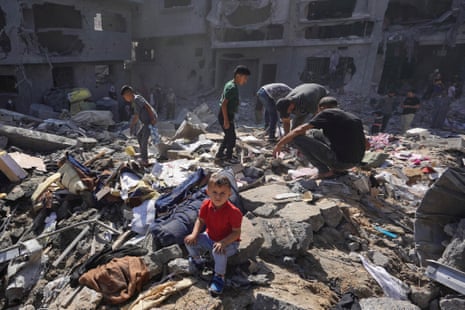
“Rafah is being bombed without any intervention from the world. The occupation [Israel] is acting freely here,” a Rafah resident and father of six told Reuters via a chat app.
According to media reports, Israeli tanks were operating inside the Tel al-Sultan, al-Izba, and Zurub areas in Rafah’s west, as well as Shaboura at the heart of the city. They also continued to occupy the eastern neighbourhoods and outskirts as well as the border with Egypt and the vital Rafah border crossing.
The resident said: “There are Israeli forces in most areas. There is heavy resistance too and they are making them pay dearly but the occupation is not ethical and they are destroying the city and the refugee camp.”
Footage of the aftermath of the Israeli strikes in Deir al-Balah shows Palestinians sifting through the wreckage of homes in search of bodies, clearing debris from damaged apartment buildings, and mourning the loss of their loved ones.
At least 17 killed in Gaza refugee camps after latest Israeli strikes, say medics.
ShareUpdated at 11.05 BST4h ago10.31 BST
Israel’s military offensive in the Gaza Strip has killed at least 37,396 Palestinians and injured 85,523 since 7 October, Gaza’s health ministry said on Wednesday.
A total of 24 Palestinians have been killed and 71 have been injured in the past 24 hours, the ministry said in a statement, according to Reuters.
ShareUpdated at 10.31 BST4h ago10.11 BST
Israeli use of heavy bombs raise 'serious concerns' under laws of war, concludes OHCHR report
The Agence France-Presse news agency have more on the report by the United Nations human rights office (OHCHR) (see 09.53 BST).
In a report published on Wednesday, the OHCHR provided details on six Israeli attacks in the Gaza Strip, which it said were emblematic of a concerning pattern, involving the suspected use of up to 2,000-pound bombs on residential buildings, a school, refugee camps and a market.
The rights office said it had verified 218 deaths in those attacks, but said it had information indicating the number of fatalities “could be much higher”.
The OHCHR report concludes that the series of Israeli strikes, exemplified by the six attacks carried out between 9 October and 2 December, suggested that Israel’s military had “repeatedly violated fundamental principles of the laws of war”, the statement said.
AFP reports that among the attacks listed were the strikes on Ash Shujaiyeh neighbourhood, in Gaza City on 2 December last year. It caused destruction across an approximate diagonal span of 130 metres, destroying 15 buildings and damaging at least 14 others, it said.
The extent of the damage and the craters visible and seen on satellite imagery indicated that around nine 2,000-pound GBU-31 bombs were used, said the OHCHR, adding that it had received information that at least 60 people were killed.
GBU-31s, along with 1,000-pound GBU-32s and 250-pound GBU-39s “are mostly used to penetrate through several floors of concrete and can completely collapse tall structures,” UN rights office spokesperson Jeremy Laurence told reporters.
ShareUpdated at 10.11 BST5h ago09.53 BST
UN human rights offics says Israel may have violated laws of war in Gaza campaign
Israeli forces may have repeatedly violated fundamental principles of the laws of war and failed to distinguish between civilians and fighters in their Gaza Strip military campaign, the United Nations human rights office (OHCHR) said on Wednesday.
Reuters reports that in a report assessing six Israeli attacks that caused a high number of casualties and destruction of civilian infrastructure, the OHCHR said Israeli forces “may have systematically violated the principles of distinction, proportionality, and precautions in attack.”
“The requirement to select means and methods of warfare that avoid or at the very least minimise to every extent civilian harm appears to have been consistently violated in Israel’s bombing campaign,” said UN high commissioner for human rights Volker Türk.
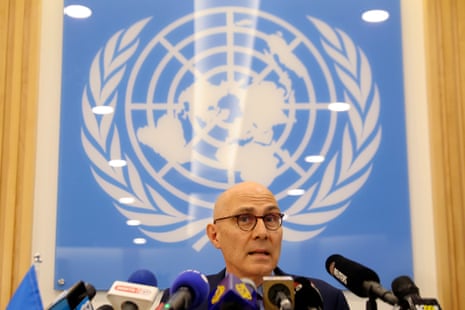
Israel’s permanent mission to the UN in Geneva characterised the analysis as “factually, legally, and methodologically flawed.”
“Since the OHCHR has, at best, a partial factual picture, any attempt to reach legal conclusions is inherently flawed,” the Israeli diplomatic mission said.
According to Reuters, the OHCHR report details six incidents that took place between 7 October and 2 December, in which the UN human rights office was able to assess the kinds of weapons, the means and the methods used in these attacks.
“We felt that it was important to get this report out now, especially because in the case of some of these attacks, some eight months have passed, and we are yet to see credible and transparent investigations,” said Ravina Shamdasani, spokesperson for OHCHR.
“We call first on the Israeli authorities to take steps to ensure that proper investigations, transparent investigations are held.” She added that, in the absence of transparent investigations, there would be “a need for international action in this regard as well.”
Last week the UN human rights office said the killing of civilians during an Israeli operation to free four hostages could amount to war crimes, but so might Palestinian militants’ holding of captives in densely populated areas.
Share5h ago09.31 BST
Israeli foreign minister says decision on all-out war against Hezbollah is near
The Israeli foreign minister, Israel Katz, has said a decision on an all-out war with Hezbollah was coming soon, as Israel generals announced late on Tuesday that they had signed off planning for an offensive into Lebanon.
The escalating rhetoric came after the release of video footage from a Hezbollah surveillance drone’s overflight of the northern city of Haifa, which included images of sensitive sites and civilian neighbourhoods.
The broadcast of the footage was widely interpreted as a thinly veiled threat against Haifa and comes as cross-border exchanges continue between the two sides. Last week northern Israel was hit by the heaviest Hezbollah barrage of the war after the Israeli killing of a senior Hezbollah commander.
Hezbollah releases drone footage it says shows key sites in the city of Haifa – video
After threats by the Hezbollah chief, Sayyed Hassan Nasrallah, to damage Haifa’s ports that are operated by Chinese and Indian companies, Katz said in a post on X: “We are getting very close to the moment of deciding on changing the rules of the game against Hezbollah and Lebanon.”
“In an all-out war, Hezbollah will be destroyed and Lebanon will be severely beaten,” he added.
Israel’s military later said “operational plans for an offensive in Lebanon were approved and validated, and decisions were taken on the continuation of increasing the readiness of troops in the field”.
Israeli foreign minister says decision on all-out war against Hezbollah is near.
Share5h ago09.13 BST
Europe should host Gaza children impacted by war, Greek foreign minister says
Europe has a duty to host children hurt and traumatised by war in Gaza for as long as the conflict continues, Greek foreign minister George Gerapetritis told Reuters on Wednesday.
The news agency reports that Gerapetritis is seeking partners in what he hopes would be a project to temporarily bring the children to the EU, and said he discussed the idea with Palestinian prime minister Mohammad Mustafa this week.
“We need to face this tragedy very clearly,” Gerapetritis said. “Europe should be open to injured people from [Gaza] but also to children who are now facing famine or other sorts of dangers.”
Greece was elected as a member of the UN security council for 2025-2026 earlier this month, and Gerapetritis believes the country’s historical ties with the Arab world give it credibility to act as a peace broker.
Reuters reports that Gerapetritis did not say how many people could be hosted by Greece or the EU but said that the issue was under discussion with Palestinian authorities.

It added that Gerapetritis had stressed that the initiative was not linked to regular migration, which has become politically sensitive in Europe and strongly opposed by a resurgent right.
“This is an obvious call of humanitarian assistance. We’re not talking here about economic migrants or other types of irregular migration,” he said, days after far-right parties surged in European parliamentary elections.
Greece condemned the 7 October attack by Hamas militants against Israel but has called for a halt to Israel’s ground and air assault on Gaza that Palestinian authorities say has killed more than 35,000 people and flattened whole cities.
The World Health Organization says many in Gaza face famine-like conditions and more than 8,000 children under five years old are suffering with acute malnutrition. In addition, the psychological impact of the war on children is “tremendous”, said Gerapetritis.
Gerapetritis told Reuters that he had talked to Palestinian and Israeli prime ministers this week about ways to seal peace and reconstruct Gaza.
“We shouldn’t wait … for the war to stop in order to start discussing it,” he said. “It is going to be a giant project and we have to develop it as early as possible,” he said.
A Gaza ceasefire would also help reduce attacks on ships by Houthi militants in the Red Sea which has affected Greece’s shipping sector.
“I am relatively optimistic that alongside the ceasefire that we’re hoping to achieve in the very near future, the situation also in the Red Sea will become much better,” Gerapetritis told Reuters.
ShareUpdated at 09.18 BST5h ago09.06 BST
Benjamin Netanyahu claims the US is withholding weapons, but the US disagree
Israeli prime minister Benjamin Netanyahu on Tuesday claimed the US is withholding weapons and implied this was slowing Israel’s offensive in the southern Gaza city of Rafah, reports the Associated Press (AP).
Netanyahu, in a short video, spoke directly to the camera in English as he lobbed sharp criticisms at US president Joe Biden over “bottlenecks” in arms transfers.
“It’s inconceivable that in the past few months, the administration has been withholding weapons and ammunitions to Israel,” Netanyahu said, adding, “Give us the tools and we’ll finish the job a lot faster.”
Netanyahu also claimed that the US secretary of state Antony Blinken, in a recent visit to Israel, said he was working around the clock to end the delays.
However, Blinken said Tuesday the only pause was related to a delayed delivering of certain heavy bombs since May over concerns about Israel’s killing of civilians in Gaza.
“We, as you know, are continuing to review one shipment that president Biden has talked about with regard to 2,000-pound bombs because of our concerns about their use in a densely populated area like Rafah,” Blinken said during a state department news conference. “That remains under review. But everything else is moving as it normally would.”
According to the AP, Netanyahu did not elaborate on what weapons were being held back, and the Israeli military declined to respond to a request for comment. Ophir Falk, a foreign policy adviser to Netanyahu, deferred questions on details to the US. government, reports the AP.
Responding to Netanyahu’s claim on Tuesday, the White House press secretary Karine Jean-Pierre said: “We generally do not know what he’s talking about. We just don’t.”
She added that the US is having “constructive discussions” with Israel about the paused shipment of heavy bombs and that it’s the only transfer being delayed.
Opening summary
It has gone 10.30am in Gaza and Tel Aviv. This is our latest live blog on the Israel-Gaza war and the wider Middle East crisis.
Israeli prime minister Benjamin Netanyahu has claimed that the US is withholding weapons and implied that it is slowing Israel’s offensive in the southern Gaza city of Rafah.
Netanyahu, in a short video on Tuesday, said it was “inconceivable that in the past few months, the administration has been withholding weapons and ammunitions to Israel,” adding: “Give us the tools and we’ll finish the job a lot faster.”
Netanyahu also claimed US secretary of state Antony Blinken, in a recent visit to Israel, said he was working around the clock to end the delays.
However, Blinken responded by saying the only pause was related to certain heavy bombs that have been delayed since May over concerns about Israel’s killing of civilians in Gaza.
More on that in a moment, first here is a summary of the latest developments:
- The Israeli foreign minister, Israel Katz, has said a decision on an all-out war with Hezbollah was coming soon, as Israel generals announced late on Tuesday that they had signed off planning for an offensive into Lebanon. The escalating rhetoric came after the release of video footage from a Hezbollah surveillance drone’s overflight of the northern city of Haifa, which included images of sensitive sites and civilian neighbourhoods.
- US envoy Amos Hochstein said on Tuesday that Washington was seeking to avoid “a greater war” following an escalation in fire between Hezbollah and the Israeli military along Lebanon’s southern frontier in recent weeks. Hochstein described the situation along the border as “serious”
- Lebanon’s prime minister Najib Mikati said his nation did not seek “escalation”, but cautioned that there should be an end to “the ongoing violations of Lebanese sovereignty and the acts of systematic killing and destruction committed by Israel”. On Monday an Israeli spokesperson said they would secure the return of displaced Israelis to their homes “militarily or diplomatically”.
- The UN says it has been unable to distribute aid entering Gaza from the Israel-controlled Kerem Shalom crossing because of lawlessness and panic among hungry people in the area, despite Israel’s daytime pause in military activity. “Fighting is not the only reason for being unable to pick up aid … The lack of any police or rule of law in the area makes it very dangerous to move goods there,” spokesperson Farhan Haq said.
- A series of Israeli airstrikes on Tuesday resulted in the deaths of at least 17 Palestinians in two of the Gaza Strip’s historic refugee camps, as tanks advanced further into the southern city of Rafah, according to reports from residents and medics.
- The UN human rights chief on Tuesday warned that the rights situation in the Israeli-occupied West Bank, including East Jerusalem, was drastically deteriorating, while there had been “unconscionable death and suffering” in Gaza. Volker Türk, UN high commissioner for human rights, said as of 15 June, 528 Palestinians, 133 of them children, had been killed by Israeli security forces or settlers since October, in some cases raising “serious concerns of unlawful killings”
- The conflict in Gaza has created unprecedented soil, water and air pollution in the region, a UN report said on Tuesday. Israel’s official social media account accused the UN, under the leadership of secretary-general António Guterres, of becoming “a tool for Hamas propaganda”.
Back to top© 2024 Guardian News & Media Limited or its affiliated companies. All rights reserved. (dcr)
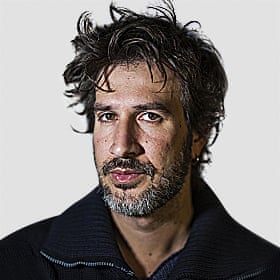
Lorenzo Tondo

Peter Beaumont
Editors comments.
Discusting to see Israels cowardly way to fight Hamas, using heavy bombs delivered by air, crushing totally large areas of tall buildings of homes, hospitals and schools, before carefully entering the destruction zone to kill anybody that might have survived. This illegal war method killing hundreds of innocent people, mostly woman, the elderly and children. This is Itanjahus plan from the start, to anilhiate the total population and buildings in Palestine. THEY MUST BE STOPPED IMMEDIATELY AND PUNISHED BY THE INTERNATIONAL COURTS.
